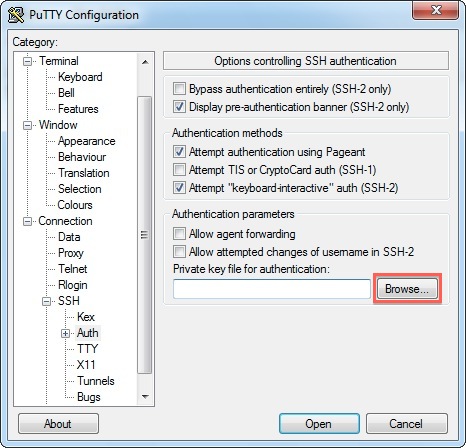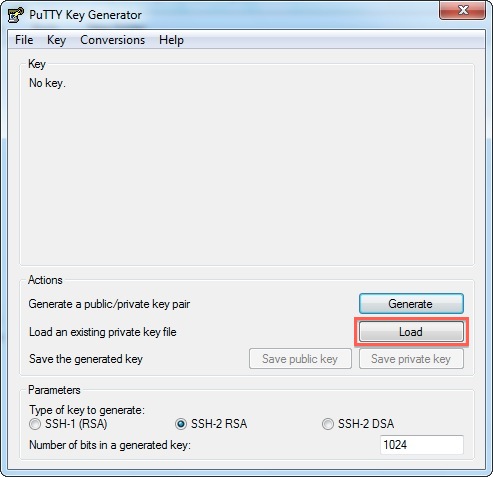Can I Use Putty Key Generator Pgp Public Key
In addition to being able to use the GnuPG Keys tool to generate a gpg key, you can also use SSH.
- Can I Use Putty Key Generator Pgp Public Keyboard
- Puttygen.exe
- Putty Key Generator Linux
- Can I Use Putty Key Generator Pgp Public Key Generator
- Putty Key Generator Download
Can I Use Putty Key Generator Pgp Public Keyboard
May 28, 2015 This blog describes how to generate a private/public key pair using GPG version 1.4.5. The resulting public key will contain two keys, one key for signing and a subkey for encryption. This key can be used with HCM Fusion SaaS to encrypt/decrypt files as they are transferred to and from the UCM server. User input is noted in RED text. How to work with PGP keys using GnuPG. You can also upload your public key to the keys.gnupg.net public key server so others can use it. /windows-7-home-premium-product-key-generator-crack.html. Follow these steps. Open a terminal window. IGolder does not log any activity done on this page. We created this tool for you to benefit PGP encryption for contacting us, contacting any iGolder member having a public PGP key, or contacting your friends. IGolder respects your privacy and does not log nor monitors any activity (key creation) done on this web page. PuTTYgen is an key generator tool for creating SSH keys for PuTTY. It is analogous to the ssh-keygen tool used in some other SSH implementations. The basic function is to create public and private key pairs. PuTTY stores keys in its own format in.ppk files. However, the tool can also convert keys to and from other formats. Aug 27, 2013 For that, open up the Putty key generator. Over here, click on the Generate button next to the 'Generate a public/private Key pair' option, in.
- Log into your account via ssh
- Type the Command: gpg --gen-key
- It will walk you through a few steps (all are fairly self-explanatory):
- Select Encryption Type
- Enter Key Size(1024 is standard)
- Enter Expiration Date
- Enter Name
- Enter Email Address
- Enter Comment(Description of the Key)
- Confirm with O
- That's it! To view your keys that you created, use the command: gpg --list-key
Puttygen.exe
Recommended Help Content
Related Help Content
Putty Key Generator Linux
The PuTTYgen program is part of PuTTY, an open source networking client for the Windows platform.
Can I Use Putty Key Generator Pgp Public Key Generator

Putty Key Generator Download

- Download and install PuTTY or PuTTYgen.
To download PuTTY or PuTTYgen, go to http://www.putty.org/ and click the You can download PuTTY here link.
- Run the PuTTYgen program.
- Set the Type of key to generate option to SSH-2 RSA.
- In the Number of bits in a generated key box, enter 2048.
- Click Generate to generate a public/private key pair.
As the key is being generated, move the mouse around the blank area as directed.
- (Optional) Enter a passphrase for the private key in the Key passphrase box and reenter it in the Confirm passphrase box.
Note:
While a passphrase is not required, you should specify one as a security measure to protect the private key from unauthorized use. When you specify a passphrase, a user must enter the passphrase every time the private key is used.
- Click Save private key to save the private key to a file. To adhere to file-naming conventions, you should give the private key file an extension of
.ppk(PuTTY private key).Note:
The.ppkfile extension indicates that the private key is in PuTTY's proprietary format. You must use a key of this format when using PuTTY as your SSH client. It cannot be used with other SSH client tools. Refer to the PuTTY documentation to convert a private key in this format to a different format. - Select all of the characters in the Public key for pasting into OpenSSH authorized_keys file box.
Make sure you select all the characters, not just the ones you can see in the narrow window. If a scroll bar is next to the characters, you aren't seeing all the characters.
- Right-click somewhere in the selected text and select Copy from the menu.
- Open a text editor and paste the characters, just as you copied them. Start at the first character in the text editor, and do not insert any line breaks.
- Save the text file in the same folder where you saved the private key, using the
.pubextension to indicate that the file contains a public key. - If you or others are going to use an SSH client that requires the OpenSSH format for private keys (such as the
sshutility on Linux), export the private key:- On the Conversions menu, choose Export OpenSSH key.
- Save the private key in OpenSSH format in the same folder where you saved the private key in
.ppkformat, using an extension such as.opensshto indicate the file's content.